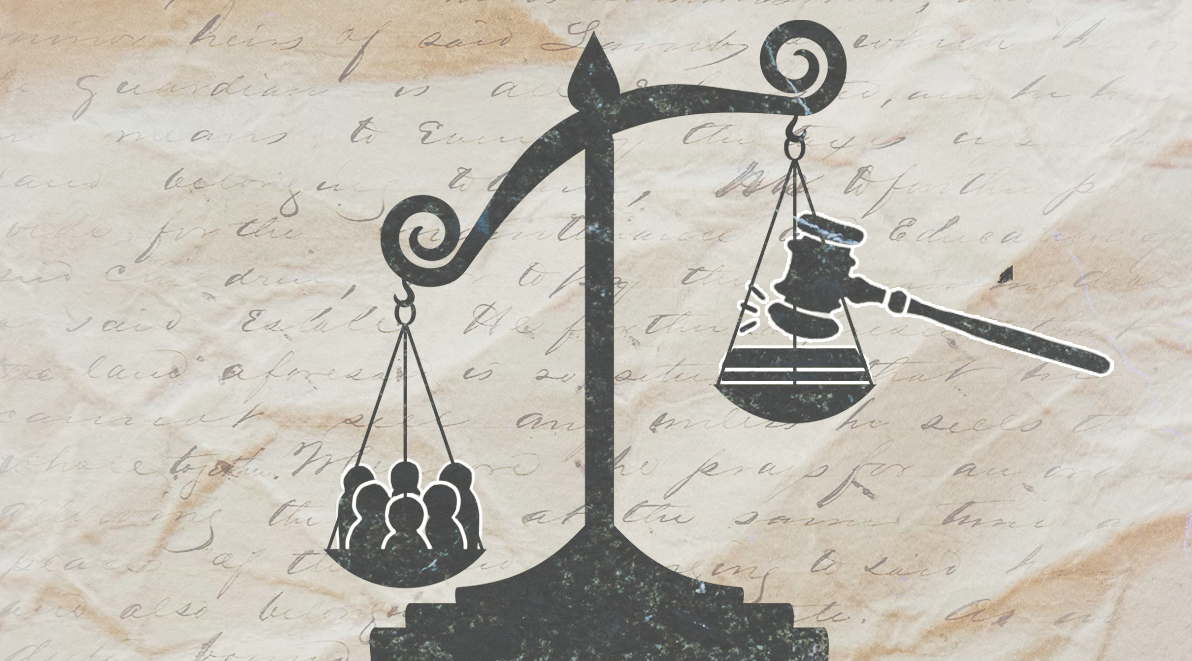Fact check: In Boston, pro-immigrant policies coexist with lower crime rates, not higher ones
Trump administration officials claim that state and local laws preventing police from participating in federal civil immigration enforcement (sometimes referred to as “sanctuary” policies) make communities more dangerous. But these claims don’t fit the facts.
The Center for American Progress conducted a nationwide analysis of over 2,000 counties in 2017, finding that crime per capita is significantly lower in sanctuary counties compared to similar non-sanctuary counties. On average, there were 35 fewer crimes committed per 10,000 people in sanctuary counties. These results accord with many other peer-reviewed studies. What’s more, the Center for American Progress report found that sanctuary counties are also more economically prosperous. A 2020 study published by researchers at UC San Diego found that immigrants are less likely to trust local law enforcement if they work with ICE. These studies support the view, long espoused by the ACLU and other supporters of welcoming city policies, that creating a clear boundary between policing and immigration enforcement enhances rather than diminishes community safety.
In Boston, the city’s Trust Act was signed in August 2014 and amended in 2019. The law prohibits City of Boston officials from using city resources to assist with federal civil immigration enforcement. Recently, the Trump administration and Congressional Republicans have taken aim at Boston and Mayor Michelle Wu, demanding that the city assist with Trump’s plans for mass deportations. Underlying these demands are claims that policies such as Boston’s harm public safety.
But the facts tell a very different story: FBI and BPD data show crime rates, already declining when the Trust Act passed in 2014, have continued to decline in the nearly 11 years since the legislation became law. Indeed, Boston has reported historic lows in the number of homicides and shootings over the last few years. Both property crime and violent crime, according to FBI Uniform Crime Reporting statistics, have been on the decline since 2005, a decline that continued following the enactment of the Trust Act.
The data from Boston reflects a trend observed in peer-reviewed studies, with some finding that sanctuary laws actually result in a decrease in crime. Contrary to claims from anti-immigrant officials in Washington, cities across the country would do well to consider Boston a model.
We saved hundreds of Biden-era AI documents, so you don't have to
Image credit: Adapted from Anton Grabolle / Better Images of AI / Classification Cupboard / CC-BY 4.0
On January 20th, Trump will begin his second term in office.
If Trump and his administration follow through on their campaign promises, the transition of power will bring devasting consequences for our fundamental rights and freedoms, particularly for immigrants, reproductive health care seekers, people of color, poor people, and queer and trans communities.
Among the many anticipated impacts, the new administration has signaled it intends to reverse Biden-era progress related to protecting our civil rights and civil liberties in the realms of privacy and artificial intelligence.
The day after the election, Trump announced his intention to repeal a Biden era executive order regulating AI. Since then, Trump has granted Elon Musk unprecedented influence over government affairs, and hosted scores of tech leaders at Mar-a-Lago. Tech CEOs have in turn donated millions to Trump’s inauguration, with contributions from Apple, Meta, Amazon, and OpenAI far outpacing their donations to Biden in 2020.
These and other developments foreshadow an incoming administration that is going to take a lax approach toward regulating technology companies.
Over the last four years, the Biden administration made important strides in this area, including a directive increasing transparency into government use of AI, FTC enforcement against location data brokers, and a DOJ lawsuit challenging the legality of RealPage’s rent price-fixing algorithm.
These efforts were buttressed by legal documents, reports, blogs, and other records laying out the administration’s efforts to protect consumers and hold Big Tech accountable. But once administrative agencies change hands under Trump, there is no guarantee that documentation of these and other initiatives will remain accessible to advocates, journalists, and interested members of the public.
So, we saved them.
Below, you can view archived copies of over 250 documents and webpages on topics like algorithmic discrimination, generative AI, and biometric surveillance. Try filtering by agency (e.g., DHS, FTC) or keywords (e.g., AI use case inventory, Kochava, risk). Use the drop-down menu to change how many rows you can see at a time.
No matter what happens, the ACLU of Massachusetts remains committed to fighting for law reforms to protect the public interest, civil rights, and civil liberties. Click here to find out ways you can get involved.
Can’t find what you’re looking for? It may be available on the Internet Archive.
Balancing the scales of justice: Why right to counsel in eviction cases is a racial justice and housing justice issue
Evictions devastate lives and communities. Research shows evictions lead to displacement from neighborhoods, decreased physical and mental well-being, instability in employment and education, increased likelihood that children will be placed in foster or other out-of-home care, and greater reliance on social service supports.
Legislation before the Massachusetts Joint Committee on the Judiciary, An Act promoting access to counsel and housing security in Massachusetts (H.1731/S.864), would provide both low-income tenants and low-income owner-occupants with access to full legal representation in eviction proceedings – and thus the crucial fighting power to stay in their homes. This legislation is supported by a broad coalition, including the legal community, health care providers, local politicians, and faith-based organizations.
Despite the many harms of evictions, only 3 percent of tenants in Massachusetts facing an eviction have a lawyer representing them in housing court. In contrast, over 90 percent of Massachusetts landlords have legal representation in those cases. The result of this imbalance is no surprise: evictions.
While it is illegal to evict someone without going through housing court, this protection is meaningless if tenants have no legal support to fight their pending eviction. Since most eviction cases are due to non-payment of rent, defendants, who can’t afford rent, probably can’t afford a lawyer. Tenants without counsel must face the confusing court system and complex housing law on their own, while others might not be able to attend their court hearing at all due to childcare, employment, or transportation issues. For people with disabilities and those who do not speak English, the barriers are even higher.
In 2020, as COVID-19 hit Massachusetts, the state put a temporary moratorium on evictions. With the scores of the population out of work, this humanitarian stopgap was essential in allowing people to stay in their homes during times of a deadly transmissible virus and stay-at-home orders. But the moratorium ended in October 2020, followed by the end of the federal moratorium in August 2021. Since then, evictions have snowballed.
Evictions are a racial justice issue. Black and Latine households are more likely than white households to rent. Research indicates these communities are also over-represented in households facing eviction. In Massachusetts, eviction cases and eviction outcomes were more frequent in communities with a higher proportion of Black and Hispanic residents. This correlation was highly statistically significant.
Adults aren’t the only ones affected by evictions – kids are too. On average, 11 percent of children under age 5 face eviction each year in Massachusetts. For Black and Hispanic communities, the percentage of children facing eviction triples at 27 percent. These evictions lead to a vicious cycle of disrupting educational engagement, contributing to higher dropout rates, and negatively affecting physical and mental health. In this way, evictions contribute to lasting generational harms that can scar communities of color for many years to come.
We need meaningful action to prevent unfair evictions. Right to counsel will correct the power imbalance that gives landlords an unfair advantage in eviction cases. Tenants deserve a fair process. Massachusetts legislators can balance the scales.
Learn more: An Act promoting access to counsel and housing stability in Massachusetts (H.1731/S.864)
Further reading:
Anthony Cilluffo, A.W. Geiger & Richard Fry, More U.S. Households Are Renting Than At Any Point In 50 Years, Pew Research Center Fact Tank (July 19, 2017), https://www.pewresearch.org/fact-tank/2017/07/19/more-u-s-households-are-renting-than-at-any-point-in-50-years/
Jaboa Lake, The Pandemic Has Exacerbated Housing Instability for Renters of Color, Center for American Progress (October 30, 2020), https://cdn.americanprogress.org/content/uploads/2020/10/29133957/Renters-of-Color-2.pdf
Emily Badger, Claire Cain Miller & Alicia Parlapiano. The Americans Most Threatened by Eviction: Young Children, The New York Times (October 2, 2023). https://www.nytimes.com/2023/10/02/upshot/evictions-children-american-renters.html



